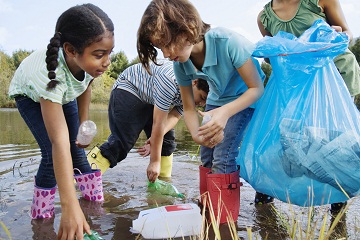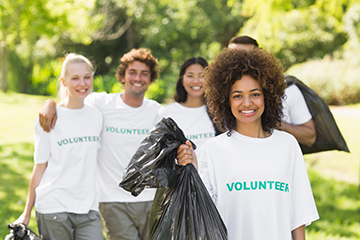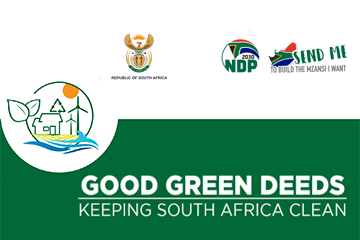Caring for our environment
 Everything we do affects our environment. How much water we use, the amount of energy we consume, our transport choices, and even the types of food we eat. If we want to conserve our precious environment and prevent the wide-reaching effects of climate change, then we must make smarter choices together.
Everything we do affects our environment. How much water we use, the amount of energy we consume, our transport choices, and even the types of food we eat. If we want to conserve our precious environment and prevent the wide-reaching effects of climate change, then we must make smarter choices together.
June is National Environment Month, with World Environment Day on 5 June, now is the perfect time to start good habits for a sustainable future.
What are we doing to contribute to a greener economy?
Within the Western Cape, we have extraordinary natural assets and a diverse economic activity that support a greener economy.
One of our biggest initiatives is our 110% Green programme. It links environmental preservation with economic growth. Since its inception, the programme has seen several organisations commit to and contribute towards a green economy.
The overall goal is to increase investment in green industries and improve the resource efficiency of businesses, in turn leading to increased competitiveness and sustainable employment creation and growth within the Western Cape.

Reducing our impact
Did you know that Section 28 of Environmental Law calls on us to care for our environment? There are lots of things that we can do to prevent global warming.
Here are a few simple ways we can achieve this:
- Reduce the amount of electricity you use by using alternative, eco-friendly methods like replacing your incandescent light bulbs with LED or compact fluorescent lights (CFLs).
- Make sure your water geyser is snug this winter with a geyser blanket. This will help reduce the amount of energy needed to warm water.
- Reduce the amount of water you use around the house. Don’t flush your toilet unnecessarily, take shorter showers and fix leaks as soon as you notice them.
- Recycle paper, plastic, glass and metals to keep our landfills from overflowing.
- When upgrading your vehicle, consider a vehicle that has a reduced impact on our environment such as a compact car, hybrid, electric vehicle or even better; use a bike or public transport.
- Plant as many indigenous trees and plants as you can, as indigenous plants consume much less water.
Make a commitment
Start by recycling household goods, saving water and saving energy in and around your home.
There are many more ways in which you can get involved in saving our planet for future generations to enjoy. You should also consider:
- buying recycled goods,
- walking or starting a lift club,
- buying organic products,
- viewing and saving information digitally instead of printing, and
- raise awareness about protecting our environment.
The Western Cape Department of Environmental Affairs and Development Planning recently published the Draft Western Cape Biodiversity Bill.
The newly released Biodiversity Bill provides for the framework for nature conservation and the protection, management and sustainable use of biodiversity and ecosystems in the Province and is available for comment until 8 July 2019.
Working together to restore Mother Nature
National government is embarking on the Good Green Deeds Programme to mobilise every citizen and social partners to act now to be a Good Samaritan for Green Deeds.
Led by the Department of Environmental Affairs, the programme aims to promote environmental actions that take into consideration sustainable living practices. At the center of this campaign are principles of environmental justice, an understanding that becoming environmentally conscious starts with one small action.
The President recently launched the Good Green Deeds Programme and will begin with outreach and greening activities in selected schools and communities across the country.
Other key dates to remember during this month include World Oceans Day on 8 June, and World Combat Desertification Day on 17 June. These days are important reminders of our lifestyles affect our environment.
Follow the conversation on Facebook and Twitter using #GoodGreenDeeds hashtag


